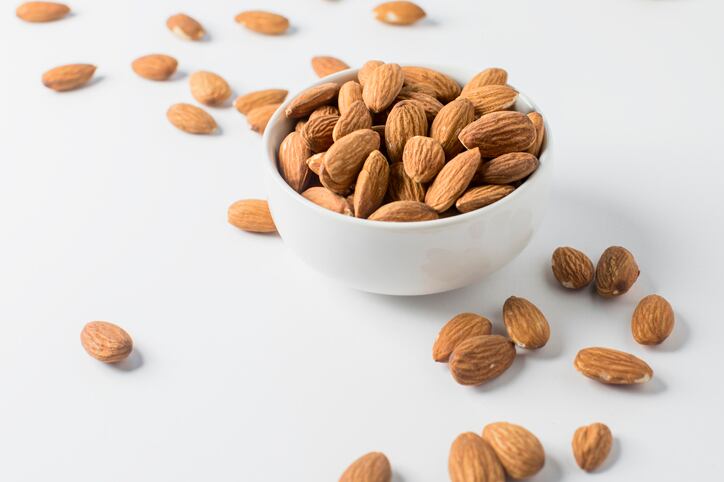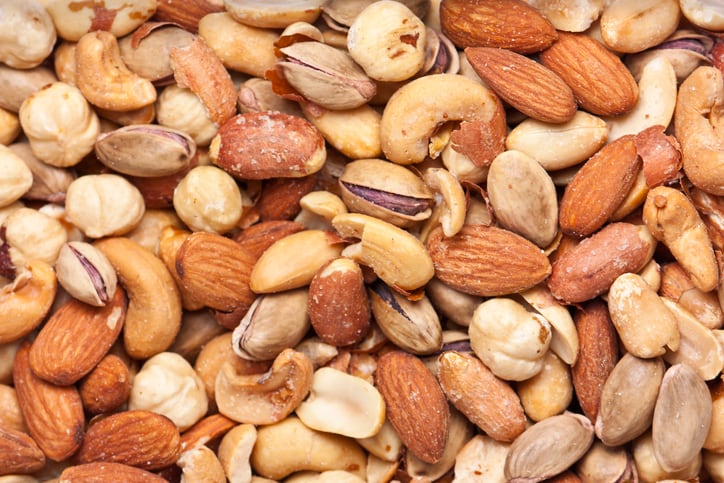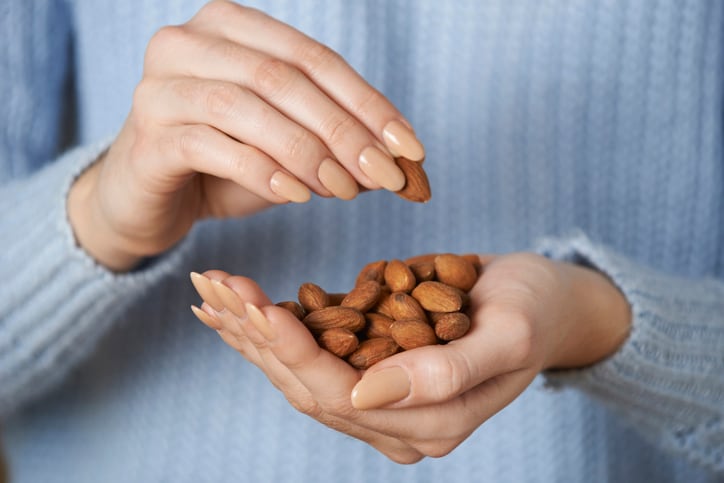According to a new randomized controlled trial, 2 ounces of almonds daily for one month lead to higher levels of the beneficial fat 12,13-dihydroxy-9Z-octadecenoic acid (12,13-DiHOME) after intense exercise. This molecule, which consists of bioactive lipids generated by the oxidation of polyunsaturated fatty acids (PUFAs), is synthesized from linoleic acid by brown fat tissue.
When strenuous exercise is combined with 57g of almonds, 12,13-DiHOME is increased by nearly 70%, yielding a beneficial effect on metabolic health and energy regulation.
The study
The research, published in Frontiers in Nutrition, involved 38 men and 26 women between the ages of 30 and 65, who did not weight train on a regular basis. The participants were split into two groups to include a randomized almond group and a control group, which was provided a calorie-matched cereal bar.
The researchers based the 4-week supplementation period on previous studies with almonds, which showed bioactive effects within this length of time. Participants in the almond group consumed 57g of almonds each day in split doses (half in the morning, half in the afternoon). Participants in the snack group ingested a calorie-matched Nutri-Grain cereal bar, also taken in split doses.
Blood and urine samples were collected, with seven blood samples collected before and after 4-weeks supplementation. Following a 30 second Wingate anaerobic test, a 50 meter shuttle test run, a vertical jump as well as a bench press and leg-back stretching exercise, additional blood and urine samples were taken, both immediately following these 90 minute sessions of intense exercise and daily for four days afterward.
Findings
Immediately after exercise, the concentration of the beneficial fat 12,13-DiHOME was 69% higher in the blood plasma of participants in the almond group versus those in the control group. On the other hand, the reverse was discovered in the control group. Another oxylipin, the mildly toxic 9,10-Dihydroxy-12-octadecenoic acid (9,10-diHOME) was 40% higher immediately after exercise in the blood of the control group when compared to the almond group. Unlike 12,13-DiHOME, 9,10-diHOME has been shown to have negative effects on exercise recovery and overall health.
Conclusion
The researchers conclude that daily consumption of almonds, its skin in particular, leads to metabolic changes, downregulating inflammation and oxidative stress from exercise and accelerating recovery.
Corresponding author David C Nieman, DrPH, FACSM, a professor and director of the Appalachian State University Human Performance Laboratory at the North Carolina Research Campus, noted that these findings suggest that almonds are particularly beneficial for the weekend warrior types.
“Here we show that volunteers who consumed 57g of almonds daily for one month before a single ‘weekend warrior’ exercise bout had more beneficial 12,13-DiHOME in their blood immediately after exercising than control volunteers. They also reported feeling less fatigue and tension, better leg-back strength, and decreased muscle damage after exercise than control volunteers.”
Source: Frontiers in Nutrition
09 January 2023 doi.org/10.3389/fnut.2022.1042719
“Almond intake alters the acute plasma dihydroxy-octadecenoic acid (DiHOME) response to eccentric exercise”
Authors: DC Nieman, et al.




